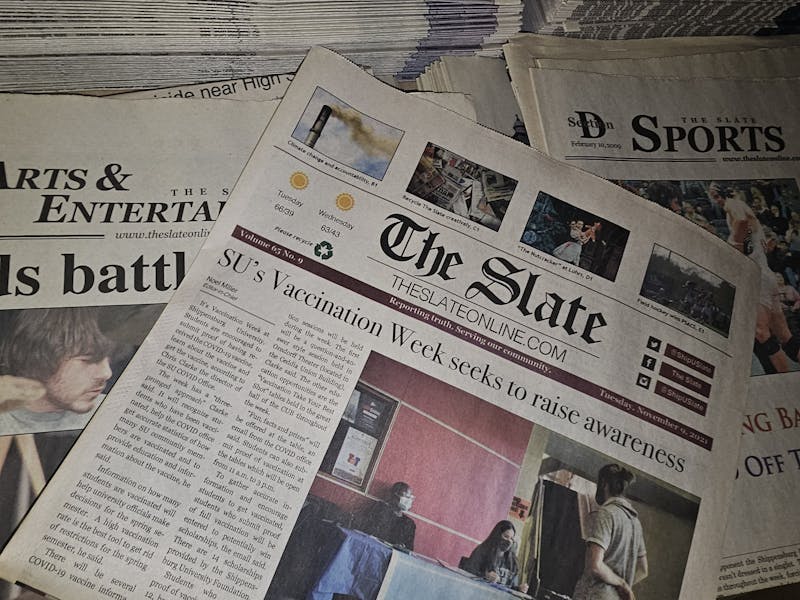Throughout my life, I have always been inspired by writing. Regardless of the writing style, it has always been a large part of my everyday consciousness.
When I think about my younger self and how I learned to cope with specific things I dealt with, I notice now that I would always resort to poetry to help me through different occurrences — happy, sad, confusing or frustrated.
Writing is meant to release tension, and everybody has the skill to do so. Writing is not ever inherently good or bad; it is personal. Even as a journalist, I’ve been taught that there is nothing quite like the human emotion that is conveyed through writing. Though journalism may be unbiased, emotion is still able to be portrayed.
And it is.
When I chose the career path of journalism, I thought of it as the ability to aid in the healing of others. Whether the story dealt with a court case, a highway closure, an album review or an editorial piece about the power of poetry, it was meant to tell others information that can benefit them.
In a way, journalism is like poetry. Most of the time, it is just less outwardly opinionated, and it doesn’t use the same level of language.
We spend large portions of our lives trying to find who we are, and sometimes, that can be painful and difficult. Writing, for me and many others, has been the light at the end of the tunnel that teaches us the truth of passion, inspiration and resilience. Many people choose journaling to help them through a conglomeration of emotions, and I relate to this.
Sometimes, people find it difficult to afford, schedule or find comfort in therapy. Therapy is a major help for mental health globally, and I believe that each person could benefit from it; nevertheless, everybody’s story begins and ends differently. If you are a person who does not go to therapy but wishes for assistance, it is valuable to discuss your emotions between yourself and your consciousness.
If you think about writing in a literal sense, it is everywhere. When you go to class, lesson plans are constructed from writing. When you go to a restaurant, the menus are created from writing. When you go to the bookstore, the stories you’re introduced to are a product of writing. When you listen to music, it is a rhythmic flow of writing. The best part about all of this is that no matter what, these are all forms of poetry.
Poetry is not a linear style of writing. However, there are genuine poetic forms, such as sestinas, sonnets, ghazals, villanelles, haikus or pantoums. Poetry — in its natural shape — is anything made up of words that portray a meaning or feeling.
You can create a poem about anything. You can write a weekly grocery list, and it could be considered poetry about the stress of finding food for each week, or it could be a reflection of who you are based on your favorite foods. Poetry is about perspective; each reader or writer has a separate interpretation.
Each person on Earth has an individual story, and it’s made up of several chapters that others will never experience due to the fact that they are not inside of the same mind. There will always be an independent perspective, and it will never be the same. That is the power of the human mind. There is magic in writing.
I guess, in this way, life is a perfect example of the power of poetry.
Each person — including you and I — is a single line. We’re all, humanly, part of a group of stanzas to make one big, inspiring poem.




The Slate welcomes thoughtful discussion on all of our stories, but please keep comments civil and on-topic. Read our full guidelines here.